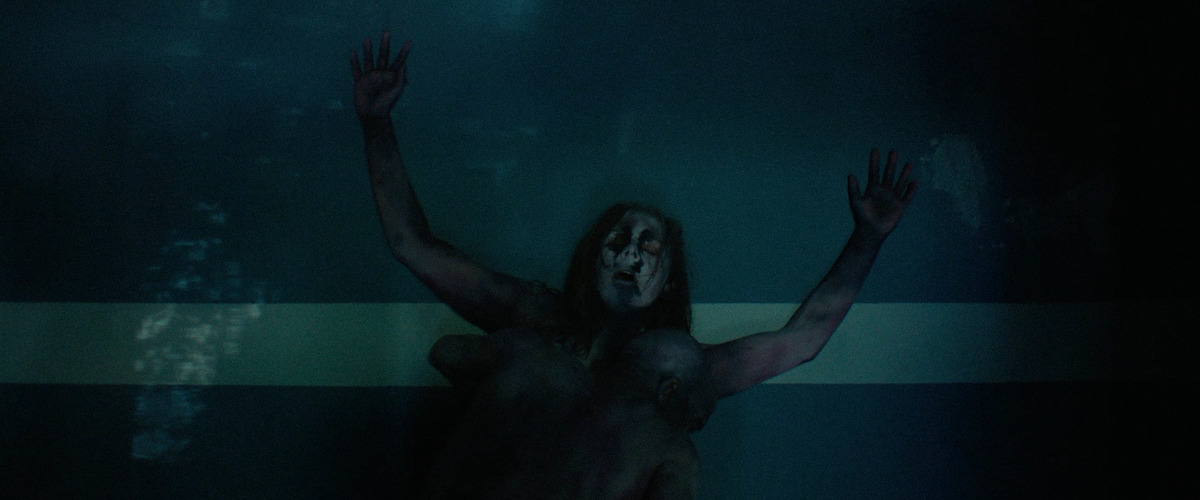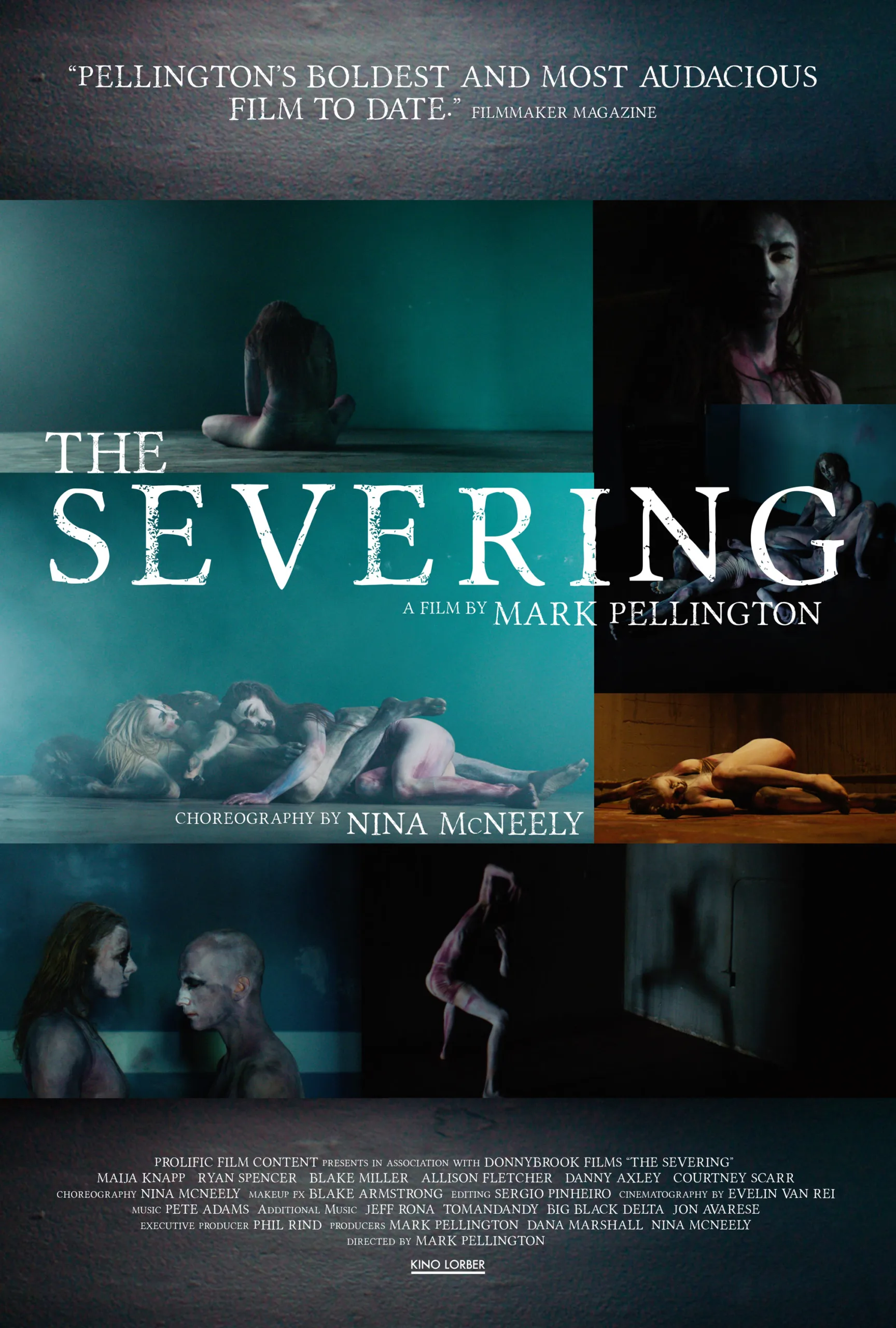Grief isn’t solely an emotional malady. It’s just as much a physical manifestation as anything. It can shake our human frame, overwhelm our senses to the point of crumbling to the knees, and freeze our neck, back and head as though we were the outline of an isolated victim in the ruins of Pompeii. Grief is a moment expected to soon pass. And yet, grief sends reverberations that cross time and space, individuals and communities. Director Mark Pellington aims to make sense of the infirmity in his evocative performance documentary.
“The Severing” is a brooding, meditative reach for catharsis translated through dance. Taking inspiration from Wim Wenders’ “Pina,” Pellington doesn’t rely on a prototypical narrative. The filmmaker relies on abstract movement, choreographed by Nina McNeely, to give life to the story.
It begins with a woman, who like the other performers, is clad in body paint—colored in gray, black, and red—and textured in earthy dust. The particles can be seen, under the glow of a luminescent light, flying off her hair as her strands tumble and shake from her twisting muscles. She is sometimes in physical conversation with other dancers, often men, who physically overwhelm her with extreme and intense physical outbursts until she, in turn, overwhelms them. She writhes, convulses, contorts, creeps, and careens in open, dingy, and grimy rooms. Sometimes her shadow says as much as its primary source; at other points, her closeness to the ground is the statement.
There isn’t much dialogue: subheads and chapter titles, such as “Come Back to Life” (mirrored backward), give us the mood and the directive. Other almost indistinguishable background narration undergirds the film’s bleak sonic landscape. The only obvious voiceover arrives when the narrator asks, “Where do I go when I fall asleep?” He then parses the difference between perceiving time and controlling it. Film, of course, isn’t just a medium that discerns time. It allows the capturer to command it. Pellington’s attempt to capture the beauty beyond—nobly assisted by Evelin Van Rei’s immersive cinematography and Sergio Pinheiro’s clever editing—is a desire to process through control, for a moth to reach a star.
Sometimes, the film can move with a slickness that belies its intended abrasiveness: The camera elegantly floats, tracking with another woman as she gracefully bends toward the lens. Pellington and Rei opt for close-ups that give the scene an inadvertent glamour. The film basically ends on a similar close-up, which concludes the proceedings on an all-too-cute note.
While “The Severing,” by way of its press notes, sells itself as a study of grief, I found something else in the performance. Seeing bodies push each other away, men crawl over women, women taking revenge on men, and screams that seem to escape into the ether—I was reminded of what toxic relationships can look and feel like, what the intensity of needing to separate from a terrible influence looks like when it takes shape. Even the music by Peter Adams takes on an expansive, floral mood, whereby bright orchestrations take the place of droning synths. A dissonance between happiness and pain seems to envelop these dancers.
That interpretation might not be what Pellington intended in a film purported to be about “fear, reconnection, and isolation,” per the press notes. Still, they could just as easily conform to other anxieties. Even when the cleaner elements guide viewers too close to a didactic emotion, the possibility of varied audience response is what gives “The Severing” a welcomed plasticity, a chance to contemplate, through the movement of dance, the thoughts that feel too difficult to put into words.




















